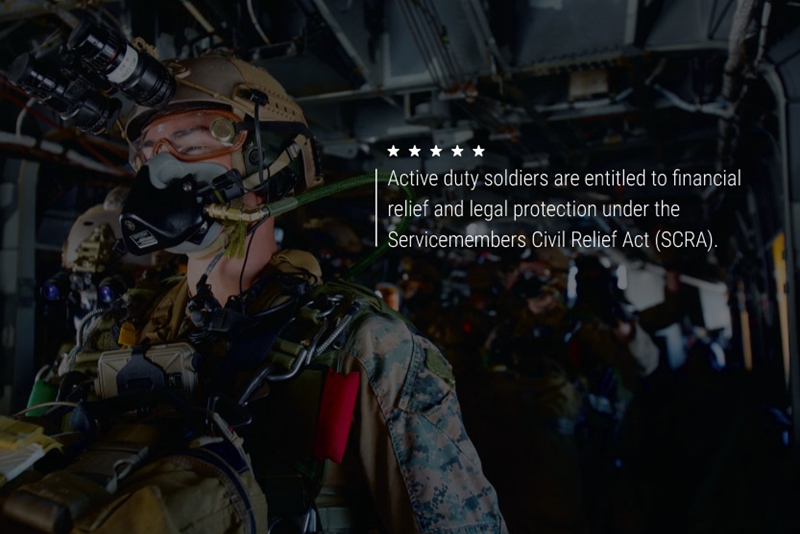If you're a servicemember called up to active duty service or long-term deployment, you'll no doubt have a lot of important financial and legal questions: What will happen to my current rental agreement or mortgage? How will I handle any ongoing legal disputes, including court appearances?
Thankfully, you are entitled to financial relief and legal protection under the Servicemembers Civil Relief Act (SCRA). It's critical that you understand how this law impacts your rights and responsibilities so you can take full advantage of its benefits.
What is the Servicemembers Civil Relief Act?
In 2003, Congress passed the SCRA to protect soldiers, sailors, airmen, marines, coast guardsmen and commissioned officers in the Public Health Service and National Oceanic and Atmospheric Administration from being the subject of a lawsuit while engaged in active duty and for one year following it.
"The act's origin can be traced back to the Civil War."
The act's origin can be traced back to the Civil War, when Congress exempted Union soldiers from legal action while serving in the war. Since then, the law has existed in one form or another until it settled into its current form in 2003.
At its core, the SCRA is designed to ensure that active duty soldiers can focus all of their attention on serving their country and devote their entire energy to the defense needs of the nation without having to worry about a car lease or the interest rate on their credit card during this time.

The benefits of SCRA
Much like most laws, the SCRA is a long, complex document full of legalese. While it has an abundance of provisions, these are the key points that you should know:
- Interest rate cap – You can cap any interest rate at 6 percent for any credit card, mortgage or other loan you or your spouse obtained prior to entering active duty status.
- Property lease termination/automobile lease cancellation – You generally have the ability to leave a residential or business property lease or cancel a car lease without penalty.
- Judicial relief – You have the option to postpone any court appearances for a civil case or civil administrative proceeding. This does not apply to any criminal court proceedings.
- Eviction protection – You and your immediate family are protected against eviction from housing due to nonpayment of rent. The monetary limit of the rental protection available changes every year, and was $3,584.99 per month or less in 2017, according to Military.com.
- State tax relief – If your service or deployment relocates you to a different state, your domicile or legal residence for tax purposes does not change. This means you are only responsible for paying state taxes wherever your home is, and not in every state you're relocated to during your service.
Since it deals with legal proceedings and financial obligations, SCRA is a complicated piece of public law. Therefore you should always ensure you speak with an Armed Forces Legal Assistance Attorney before you seek any relief or waive any of your rights under this act.

